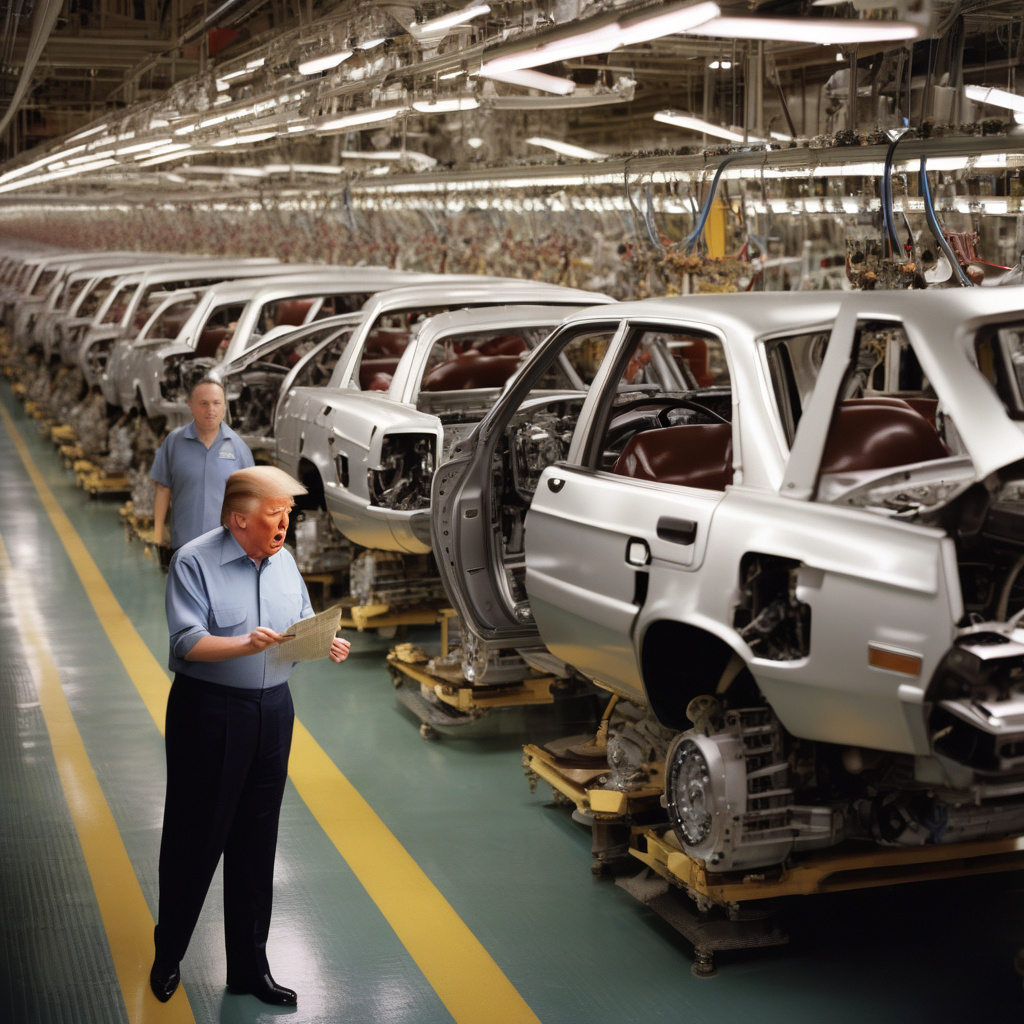Trump Eases Auto Tariffs Amid Industry Concerns
In a move that has been welcomed by major players in the automotive industry, President Trump recently announced a rollback of auto tariffs. Ford, GM, and Stellantis have all expressed their approval of this decision, seeing it as a positive step forward. However, despite this progress, there are still lingering concerns surrounding supply chain challenges that need to be addressed.
The decision to ease auto tariffs comes at a crucial time for the industry, which has been grappling with the economic fallout of the global pandemic. By reducing tariffs, the Trump administration aims to stimulate growth and investment in the automotive sector, ultimately benefiting both manufacturers and consumers. Ford, GM, and Stellantis have all voiced their support for this move, highlighting the positive impact it could have on their businesses.
For Ford, GM, and Stellantis, the rollback of auto tariffs represents a significant opportunity to enhance their competitiveness in the market. By reducing the cost of importing parts and vehicles, these companies can streamline their operations and potentially lower prices for consumers. This, in turn, could lead to increased sales and market share, bolstering their overall position in the industry.
While the easing of auto tariffs is certainly a positive development, it is not without its challenges. One of the key concerns facing automakers is the issue of supply chain disruptions. The pandemic exposed vulnerabilities in global supply chains, highlighting the need for greater resilience and flexibility. Ford, GM, and Stellantis, along with other industry players, will need to work closely with suppliers to address these challenges and ensure a smooth flow of parts and components.
Another potential issue that automakers may face is the impact of fluctuating trade policies. The automotive industry is highly globalized, with parts and vehicles moving across borders on a daily basis. Any changes to trade agreements or tariffs can have a significant impact on production costs and profitability. Ford, GM, and Stellantis will need to closely monitor these developments and adapt their strategies accordingly to mitigate any potential risks.
Despite these challenges, the decision to ease auto tariffs represents a positive step towards revitalizing the automotive industry. By reducing barriers to trade, President Trump has created an environment that is conducive to growth and innovation. Ford, GM, and Stellantis, along with other automakers, now have an opportunity to capitalize on these changes and position themselves for long-term success in the ever-evolving market.
As the automotive industry continues to navigate the challenges posed by the pandemic and changing market dynamics, collaboration and innovation will be key to driving growth and prosperity. With the support of favorable trade policies, automakers like Ford, GM, and Stellantis can leverage their strengths to overcome challenges and emerge stronger in the competitive global market.
Ford, GM, Stellantis, auto tariffs, supply chain challenges, automotive industry.












